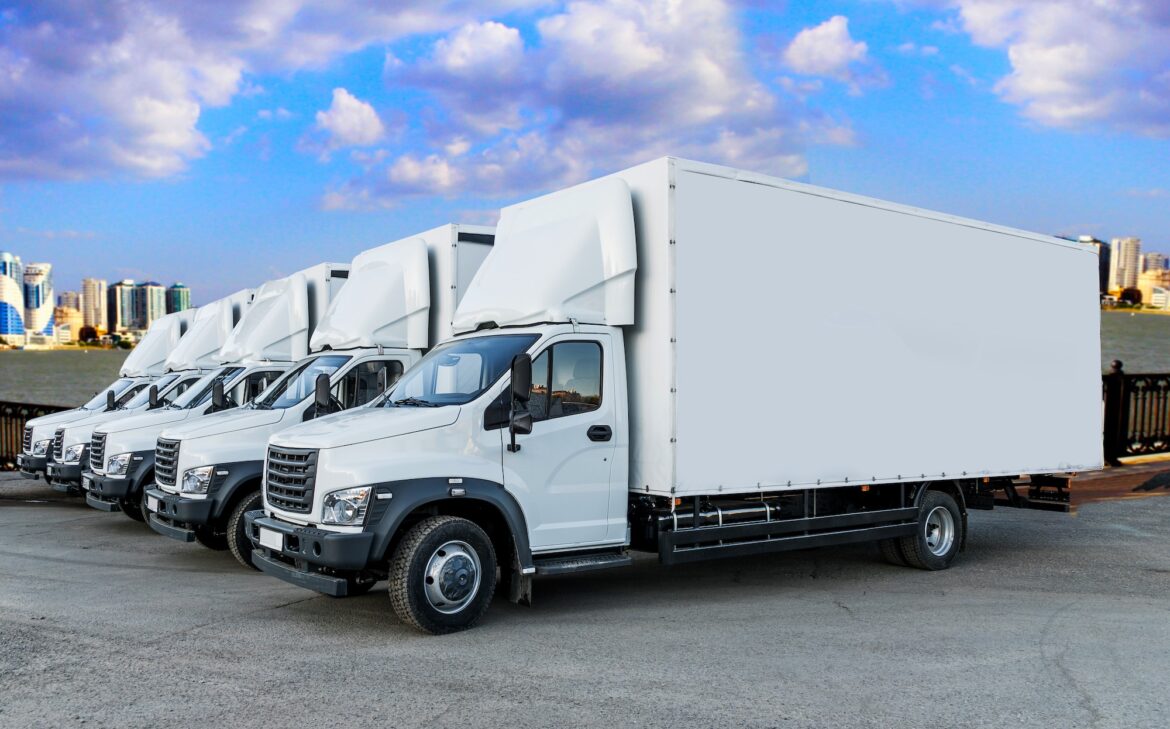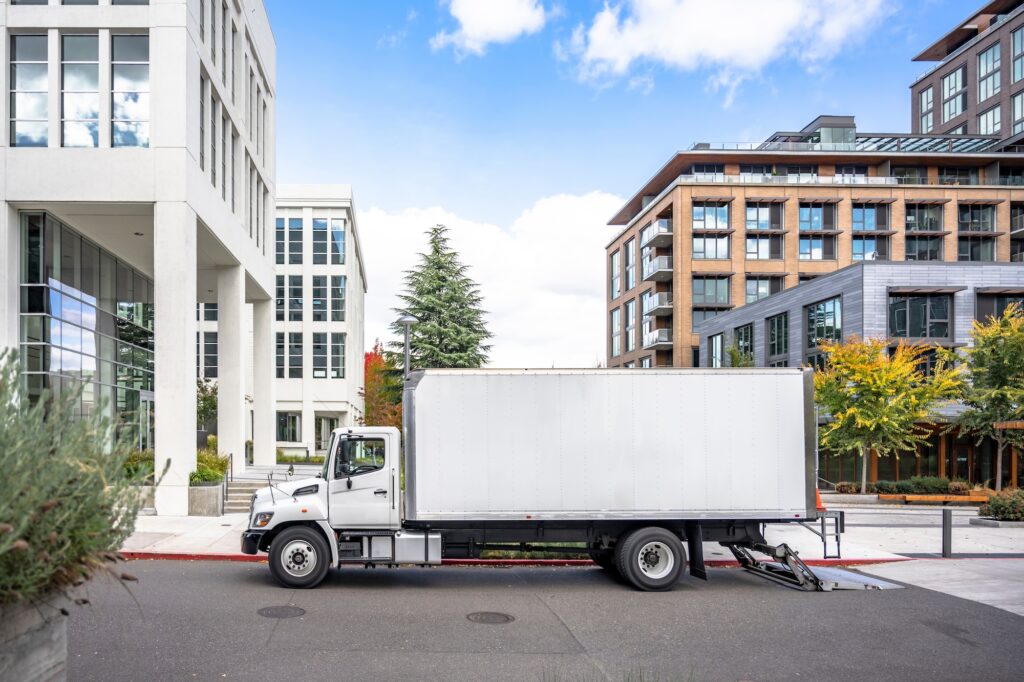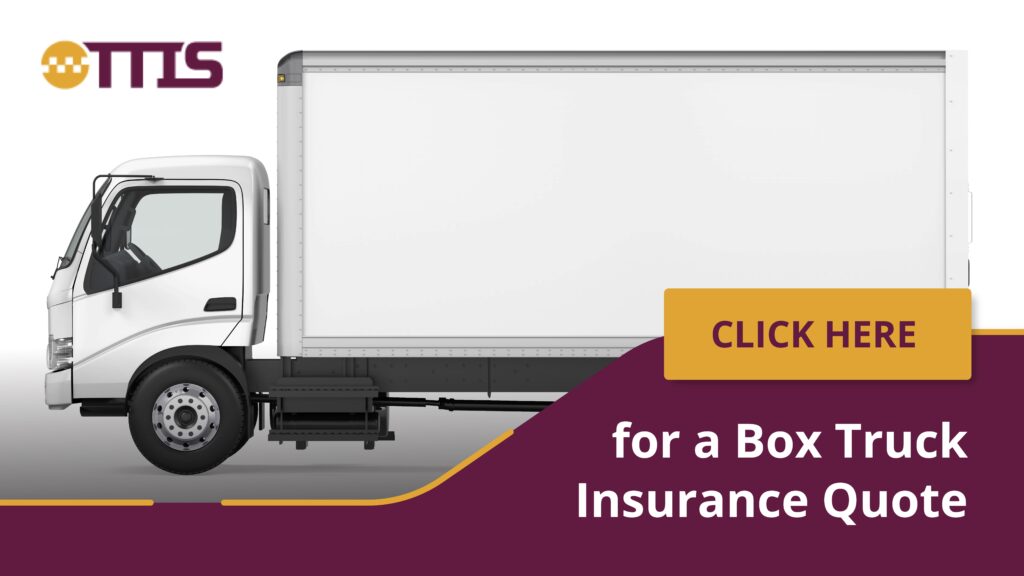
Are you a business owner with a box truck gearing up for the long haul? Before you map out your next delivery, let’s navigate through a crucial checkpoint: determining your box truck insurance cost. It’s not merely a line item on your budget– it’s the safeguard of your business assets and livelihood. Let’s dive into what you need to know about box truck insurance costs to safeguard your business and keep things running smoothly.
Factors Affecting Box Truck Insurance Cost
Understanding the factors that steer your insurance costs is key to a well-oiled, cost-efficient operation:
– Type of Box Truck: Bigger rigs typically mean bigger premiums. To give you a better idea of what to expect, we’ll compare 26-ft and 16-ft box truck insurance costs in the sections below.
– Cargo: The nature of your cargo can load up your insurance costs. High-value goods, perishable items, fragile items, hazardous materials, and theft-prone items are a few examples of cargo that can affect the cost of your box truck insurance. Each type of cargo carries its own risks, from spoilage to high-target theft, which insurers account for in their rates.
– Coverage Type: More comprehensive coverage can secure your business but also add to your expenses. Liability insurance is typically the minimum legal requirement, but physical damage, cargo, and non-trucking liability insurance provide additional layers of protection that can be crucial for your business.
– Box Truck Usage: The frequency and manner in which you use your box truck play a significant role in insurance costs. For instance, trucks used for long-haul deliveries may incur higher premiums than those used for local, light deliveries due to the increased risk of long-distance travel. Also, if you’re using your box truck for non-business purposes, you’ll need additional insurance coverage— specifically, non-trucking liability insurance.
– Driving History: The frequency and manner in which you use your box truck play a significant role in insurance costs. For instance, trucks used for long-haul deliveries may incur higher premiums than those used for local, light deliveries due to the increased risk of long-distance travel.
– Location: Urban deliveries might navigate at higher rates than rural routes due to the increased risks associated with city driving, such as traffic congestion and higher accident rates. Additionally, insurance requirements and costs can vary by state and locality, reflecting the different risk profiles and regulatory environments.
– Mileage: The more miles you cover, the higher the likelihood of an incident. Insurers may charge more for vehicles that spend a lot of time on the road, as each mile represents a potential risk.
– Insurance History: Just like your personal credit score, your insurance history can impact your current insurance costs. A history of claims can indicate to insurers that you’re a higher risk, which may lead to higher premiums.
Knowing these factors is vital as the right insurance policy ensures your business keeps moving, no matter the roadblocks.
How Much Does Box Truck Insurance Cost? A General Overview
Based on the many factors outlined above, insurance costs for box trucks can span a broad spectrum. Annually, you might expect to pay between $3,000 to $5,000, but these numbers will vary based on your specific business operations.
Many insurance companies offer a discount for policyholders who pay their premium in one annual lump sum rather than in monthly installments. This discount can be significant, with some box truck companies seeing their yearly premiums drop by up to 10% by paying annually. It’s always a good idea to ask your insurance provider about the payment options available and any potential discounts for annual payments to ensure you’re getting the most cost-effective plan for your business.
Breaking it Down: Box Truck Insurance Cost Per Month
When breaking down the costs into monthly payments, the figures become more digestible for day-to-day budgeting. On average, you can expect to pay around $500 per month for comprehensive commercial box truck insurance. Keep in mind, other factors like your payment history and credit score can influence your monthly costs. Weighing the benefits of monthly versus annual payments can help you decide the best option for your financial plan.
Size Matters: 26 Foot Box Truck Insurance Cost
Insuring a 26-foot box truck typically comes with higher premiums due to the increased liability risks and potential for more significant damage in an accident. The insurance cost for a 26ft box truck starts from around $250 per month and can go up to $950 per month. This size truck might have different insurance rates because it’s often used for heavier loads and longer distances, which can increase the risk of claims.
16 Foot Box Truck Insurance Cost
In contrast, insuring a 16-foot box truck is generally less expensive. The average cost of a trucking primary liability insurance policy for a 16-foot box truck is around $415 per month. These trucks are smaller, easier to maneuver, and often used for lighter, local deliveries, which translates to a lower risk profile and, consequently, lower insurance costs.
Navigating Box Truck Insurance Requirements
Insurance requirements for box trucks are indeed multifaceted, with some coverages being universally mandatory and others being conditional based on various factors such as the nature of your business, the goods you transport, and the regions in which you operate. Here’s a more detailed breakdown:
– Liability Insurance: This is the cornerstone of box truck insurance and is always required by law across the United States. It’s designed to cover damages or injuries that your truck may cause to other people or property. The minimum required amount can vary by state, but it is universally mandated for any commercial vehicle, including box trucks.
– Physical Damage Coverage: While not always legally required, physical damage coverage, which includes collision and comprehensive insurance, is often required by lenders if you are financing or leasing your box truck. This coverage is crucial for protecting your investment in your vehicle as it covers the cost of repairs or replacement after an accident, theft, vandalism, or other covered perils.
– Cargo Insurance: This type of insurance is not universally mandated by law, but it is often required by clients and is considered a best practice in the industry. Cargo insurance protects the goods you are hauling, which is particularly important if you are transporting goods for others. The Federal Motor Carrier Safety Administration (FMCSA) requires a minimum amount of cargo insurance for carriers who transport household goods interstate, and many shipping contracts will require proof of adequate cargo insurance regardless of the law.
– Uninsured/Underinsured Motorist Coverage: Some states require this coverage to protect you against losses caused by drivers who do not have sufficient insurance coverage. It’s an important coverage to consider, even if not mandated, as it adds an extra layer of protection for your business.
– Other Potential Requirements: Depending on the nature of your operations, you may also need specialized coverages. For example, if you transport hazardous materials, federal regulations require specific insurance coverages. Additionally, if you operate across state lines, you’ll need to comply with the insurance requirements set forth by the FMCSA, which may include higher liability limits and additional coverages.
To ensure you meet all legal standards and are adequately protected, it’s essential to check with your state’s Department of Motor Vehicles (DMV), the FMCSA, or consult with a professional box truck insurance agent who is familiar with local and federal regulations. Keep in mind that regulations can vary not just by state but also by the specific areas within states, so staying up-to-date with the requirements where you operate is crucial for your business’s compliance and protection.
Tips and Tricks: Getting the Best Box Truck Insurance Rates
Finding cost-effective rates that provide the right coverage involves:
– Comparing Quotes: Assess multiple offers to find the best fit for your business.
– Understanding Premium Influences: Know what factors affect your rates.
– Seeking Comprehensive Value: Opt for a policy that offers thorough coverage at a fair price.
– Reviewing Annual Policy: As your needs evolve, take the opportunity to negotiate rates or switch providers if you find a better deal.
– Maximizing Discounts: Ask insurers about any discounts for which you may be eligible– such as bundling multiple policies, paying your premium in full annually, having a commercial driver’s license, or having a history of safe driving.
– Investing in Driver Training: Some insurers offer discounts for businesses that implement driver safety programs.
– Increasing Deductibles: If you’re willing to pay more out of pocket in the event of a claim, you can lower your premium by opting for a higher deductible.
As you compare quotes, keep in mind: the cheapest option isn’t always the best when it comes to insurance; the goal is to find a balance between cost and comprehensive protection.
Embark on Your Box Truck Career with Peace of Mind
For box truck business owners, comprehending insurance costs is about securing your business’s future. With the right coverage, you can navigate with certainty and focus on what you do best—running your business.
Ready to secure your business? Get a box truck insurance quote from OTTIS and ensure your business is ready for the road ahead.







